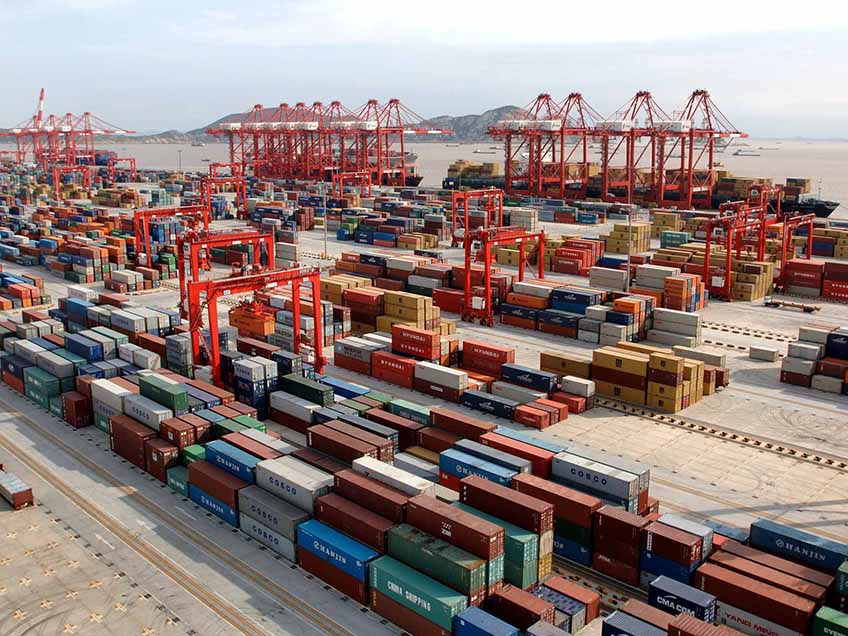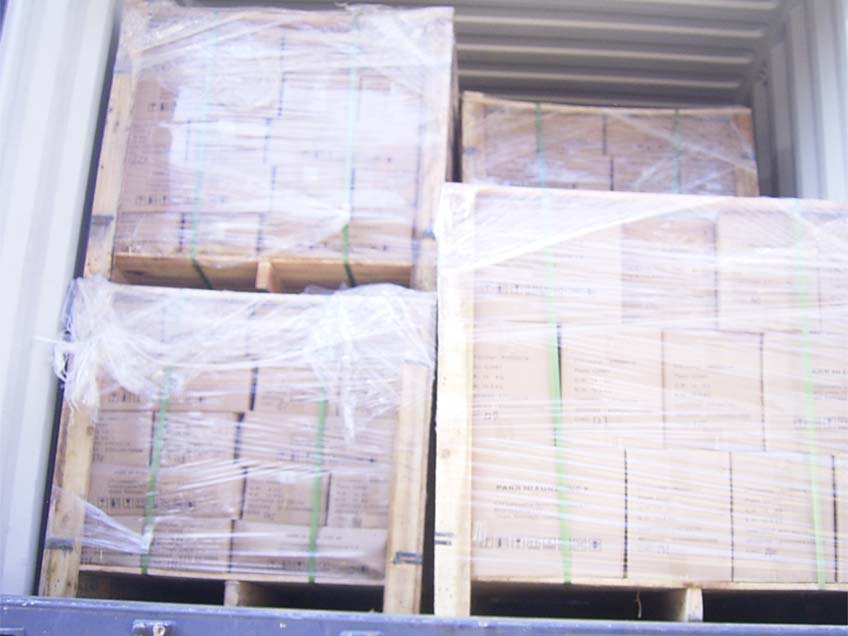
The costs of moisture damage
Moisture damage costs during transport of goods are as unpredictable as they are expensive. No one knows for sure the costs, but the amount is substantial. Insurers estimate that approximately 12% of all container shipment damage is moisture-related.
If the retail value of one shipping container is USD 60,000, even at a minor moisture damage rate of 3% you may have to scrap products worth USD 1,800. Multiply the amount scrapped by the number of containers you are shipping yearly, and that could mean goods worth millions of dollars are lost every single year.
Avoidable environmental and other hidden costs
Moisture damage goes beyond money, it also impacts the environment and leads to an inefficient use of available resources. The consequences of ineffective management of moisture during transportation take us further away from the UN’s Sustainable Development Goals to achieve a better and sustainable future – something that concerns us all.
At Topdry, we think it’s unnecessary to expose your products to moisture during container transport. Surprisingly, many companies still accept the large scrapping costs that follow. But these are only a “tip of the iceberg” cost, and many miss the hidden costs:
● Re-packing
● Decontamination
● Production interruption
● Bad will, weakening the supplier/customer relationship
● Damage to the brand
● Environmental waste/damage
● Missed business opportunities
• Seasonal sales
• Lost revenue from cancelled deliveries


How to avoid moisture damage costs?
As you can see, it is inevitable that moisture will get inside your containers even though they are sealed throughout the supply chain. However, there are a few ways to prevent water damage once your goods are within the shipping container.
- Ventilation of the Shipping Container
- Adding a small weather-protected vent to your shipping container can decrease the amount of condensation within the container by releasing the excess moisture. The vents allow the container to "breathe" with the rise and fall of the exterior temperatures which helps prevent moisture damage.
Some have found that vents placed on the doors of the container are more effective than vents on the sides since containers are typically packed side to side on the ship. This ensures that airflow will not be constricted in transit.
However, most of export merchants or import merchants didn't have their own containers, this way makes it impractical to directly prevent moisture damage by adding some vents. - Dehumidifers
- A dehumidifier works within the container to remove the moisture from the air. The water extracted by the humidifier should be dumped through pipework to the exterior of the container to prevent re-circulation. Some of these devices include an on/off switch that reacts to the amount of moisture in the air and saves energy.
Maybe you can see, this approach always come with a heavy cost and consume energy. So, this is not a good choice for avoiding moisture damage costs. - Grafotherm
- Grafotherm is a non-condensation coating applied to the ceiling and six interior sides of the container. This coating acts as insulation and can also retain some moisture within its structure.
Typically, most of shipper didn't have enough time and cost to apply grafotherm inside the containers. - Container Lining
- Including a thermal lining inside your container can help reduce the amount of condensation and prevent moisture damage. These linings help regulate the temperature within the container to reduce the extreme changes undergone through the supply chain. However, since condensation is an airborne issue, linings are not able to remove the risk entirely.
- Moisture absorbing agents
- Moisture absorbing agents were known as desiccants, which are non-mechanical devices that absorbs or adsorbs water molecules from the surrounding air, decreasing the levels of moisture in the container. Topdry container desiccants trap moisture and eliminate the root cause of moisture damage, protect all the goods and packaging from high relative humidity and ‘container rain ‘which can cause different types of damage to goods.